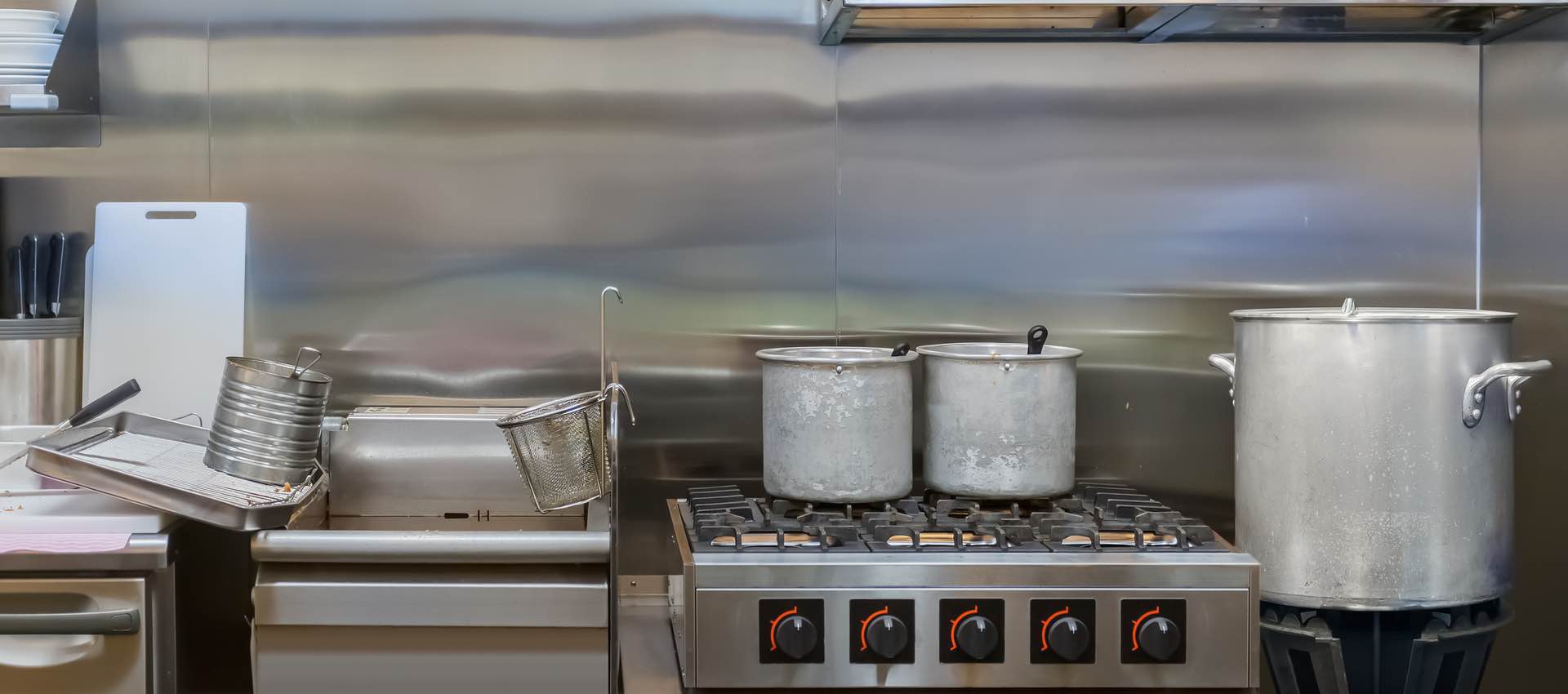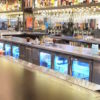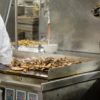In any restaurant, watching out for grease buildup is absolutely necessary. An excess of grease on appliances prevents them from working properly, and more importantly, creates a very dangerous fire hazard. Grease is extremely flammable, and if your kitchen catches fire, the grease will quickly ignite, making the situation much more damaging. This means loss of property, loss of reputation – and in the worst case – loss of life.
Grease buildup can cause a host of other issues, including:
- Fire. Grease builds up behind the exhaust hoods, and when high heat is pulled into the hoods, this can light the grease on fire, often in hard to reach places.
- Injury and slipping. If a tile floor is greasy, it causes an unsafe working environment for the restaurant employees, and in some cases, customers.
- Environmental issues. Improper disposal of grease can result in FOG and EPA charges, as well as contamination of local water sources, streams and harm to wildlife. Know the protocol in your area, and dispose of your grease in a legal and safe way.
- Plumbing. If grease goes through your pipes, it hardens to a gel and damages the internal plumbing system by clogging and possibly overflowing the sewers.
- Vermin. A buildup of grease can attract animals – and not cute, woodland creatures. Vermin is an huge issue and is very damaging to both the safety and reputation of a restaurant, so take precautions to keep the critters out.
So, where do you look? There are two different categories to keep in mind. The first is heavy appliances and systems that require professional grease cleaning machinery, such as:
- Vent Hood. Keeping your vent hood clean is the first step of maintaining a comfortable kitchen. Odors, airborne grease, and general cleanliness are all improved by a clean vent hood. Keep an eye on yours, for both the care of your appliance and the comfort of your employees.
- Grease Receptacles. Dump the grease in a safe container and dispose properly and legally. Never put grease waste down the sink! Clean your grease receptacles regularly.
- Exhaust ducts. As mentioned earlier, grease mixed with the high heat of exhaust ducts is a recipe for disaster. If a fire starts here, it could spread through the whole restaurant. Make sure the grease around your exhaust ducts is removed regularly.
- Exhaust hoods. Clean your hoods for the same reason you clean your ducts.
- Exhaust fans. If a buildup of grease exists on your fans, that slows the fans down and prevents them from cooling your equipment properly, which is turn causes a whole other fire hazard. Clean your fans.
- Baffle filters. Dirty baffle filters mean a less effective removal of grease and smells. Stop grease from hardening on your baffle filters by soaking and pressure washing them regularly.
Another spot to look for grease is in place that are slightly more accessible and easy to hand-clean, such as:
- Floors. Don’t let your employees slip! Clean your floors to provide a safe, tidy working space.
- Countertops. No one wants to prepare food on a greasy countertop, or eat food that came from a greasy countertop. Use a cleanser that rids the grease, while still being safe for food and friendly to the air/earth.
- Hotboxes. Hotboxes are where cooked food is kept warm until the rest of the order is completed. Grease here smells bad and hurts the quality of the food.
- Pots/Pans/Misc. This goes without saying.
Remember, your hood cleaning company should always provide before and after photos for your records and for potential insurance purposes. The key to a healthy, happy restaurant starts with grease control, and Halo Restoration Services is committed to helping your commercial kitchen manage the process from start to finish.




